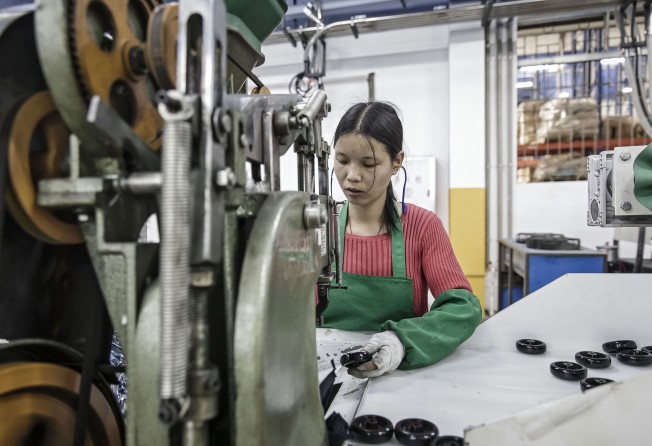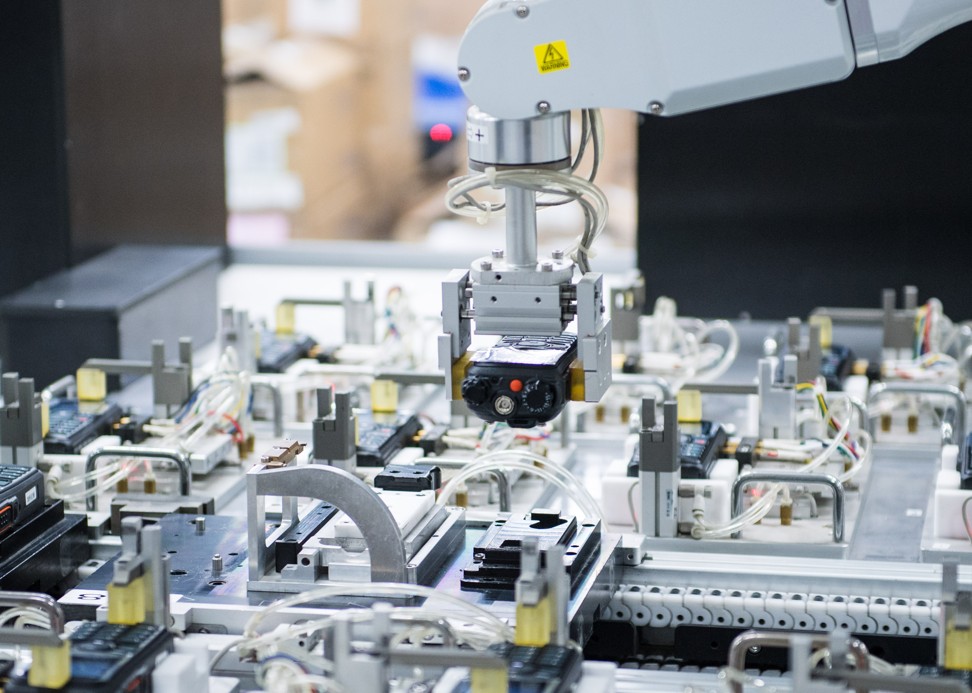China exporters praying weaker yuan will save them from Donald Trump’s higher trade war tariffs
- For growing number of Chinese exporters, US tariff rates have reached their breaking point, meaning they expect to lose access to the American market
- Exporters in China’s manufacturing heartlands also express growing annoyance at US government and buyers, vowing to find new markets

Chinese exporters are praying for a continued depreciation of the yuan, hoping it will cushion the blow of the new round of tariffs to be implemented by the United States.
Many traditional exporters in China’s Pearl River Delta and Yangtze River Delta regions, the country’s manufacturing heartlands, say that the increase in US tariffs to 30 per cent will go beyond the limit of what they can afford.
They also fully expect both the US and Chinese tariffs to increase further, meaning they will lose access to the US market in which they have been operating for decades.
“We were convinced that one of our long-term US clients, who is actually an intermediate trader for supermarket chains in the US, would order from us. But 300 container loads of goods have yet to be shipped, with a value of about US$5 million,” said a Chinese exporter of canned fruit, who wished not to be named.
“The US client called us last weekend and asked us to pay the additional tariff of 5 per cent. We could not refuse since it was our idea to bid to supply the canned fruit for the supermarkets,” she said. “We have no way to deal with it now. We only hope that the yuan will depreciate in the coming weeks and offset the new tariff. Otherwise, we will lose a lot [of money] on this order.”
If the yuan does not further depreciate by more than 5 per cent, she added, the company will have no choice but to cease exports to the US after October 1.
Exporters have been left blindsided after the US said on Friday that it would raise the tariff rate on US$250 billion of Chinese imports from 25 per cent to 30 per cent from October 1, and raise the planned new tariff rate on US$300 billion of goods from 10 per cent to 15 per cent in two tranches on September 1 and December 15.
This was in response to China’s move earlier on Friday to impose retaliatory tariffs of between 5 and 10 per cent on US$75 billion worth of American products, including soybeans, pork, and, for the first time, crude oil. China also reinstated the 25 per cent penalty duty on imports of US-made cars and car parts, bringing the total tariff on the sector to 40 per cent.
“Malaysian manufacturers import oranges from China, process them into canned oranges and export them to the United States. It’s already cheaper than any canned oranges made in China. So you soon may not be able to find made in China canned fruit in American supermarkets.” said the exporter, fearful of losing her US market to Southeast Asian competitors.

Steve Qiu is the founder of a Shenzhen-based tech start-up that designs, produces and exports smart home devices to the US and Europe.
“I changed a number of goods payments from dollars to yuan early this month since I thought it would be impossible to see the yuan fall below 7 to the dollar at that time. But now a growing number of exporters I know are expecting the rate to soon fall below 7.2, 7.3 or even further to cushion the [impact of the] tariffs,” he said.
An increasing number of exporting manufactures, making goods ranging from sofas to hi-tech LEDs, have now accepted that the tariffs are unlikely to be reversed. The latest escalation has also inspired more opposition to US government actions from exporters, and encouraged companies to look to non-US markets as a practical response.
“In the case of medium-and high-end furniture, even with the addition of tariffs, it is still impossible to find substitute markets for our products,” said Xie Jun, a furniture exporter in Haining, a city in Zhejiang province where hundreds of furniture factories make goods for export to the US.
Of course, our profits are already very small. This round of tariffs is 30 per cent, which is already our limit
“Of course, our profits are already very small. This round of tariffs is 30 per cent, which is already our limit. If US buyers do not pay for this round of tax increases, we have no choice but to give up on the US market,” he said. “Our manufacturers have become disgusted with the US government, and even US buyers.”
Xie added that a growing number of factories in the region are shifting their exports to India and countries along the belt and road route.
“Tariffs are one trigger, and according to what I know, many [Chinese] state-owned raw material suppliers are starting to offer a cheaper price to Chinese exporters in the toy and furniture sectors [so they are able] to sell to those emerging markets,” Xie said.
Jason Liang, sales manager at a Guangzhou-based exporter of LEDs, said that the soaring tariffs of up to 30 per cent “or even higher, were expected”.
“The United States will not stop the trade war until it sinks the Chinese economy,” Liang said.
“For Chinese exporters, it is useless to be afraid because there is nowhere to hide. We can only rely on the wisdom and countermeasures of the central government,” he said, adding that as long as Beijing can maintain employment levels and prevent the housing market from collapsing, “we are not afraid”.